- Home
- Technical Cooperation Projects
- Index of Countries
- Middle East
- Egypt
- Project for Strengthening Water Management Transfer
- Project News
- Technical Exchange Program was implemented with JICA's projects of Kenya and Tanzania.
Project News
2015-09-21
Technical Exchange Program was implemented with JICA's projects of Kenya and Tanzania.
The Project for Strengthening Water Management Transfer (SWMT Project) implemented a Technical Exchange Program (TEP) with the Project for Rice-based and Market-oriented Agriculture Promotion (RiceMAPP) in Kenya and the Project for Supporting Rice Industry Development (Tanrice 2) in Tanzania from September 14 to 17, 2015.
Total of 17 counterparts were invited to Egypt (10 from the RiceMAPP and 7 from the Tanrice 2) with three Japanese project experts (CPs) (Mr. Naoiki Mitamura from the RiceMAPP and Mr. Motonori Tomitaka and Mr. Yasunori Saiki from the Tanrice 2). The RiceMAPP is a technical cooperation project which aims at increasing farmers' incomes in Mwea district by the market-oriented approach[1], while the Tanrice 2 is a technical cooperation project whose purpose is that farmers in the target areas adopt improved rice farming technologies through training.
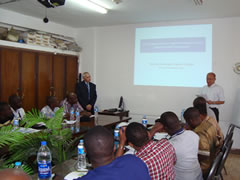 First day of the TEP
First day of the TEP
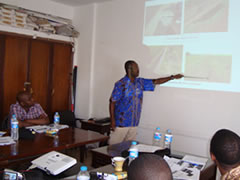 First day of the TEP
First day of the TEP
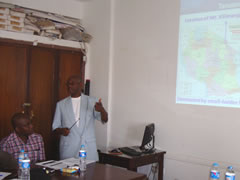 First day of the TEP
First day of the TEP
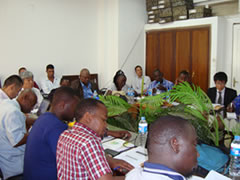 First day of the TEP
First day of the TEP
On the first day, the participants of the RiceMAPP and the Tanrice 2 firstly visited the Central Department of Irrigation Advisory Service (CDIAS) of Ministry of Water Resources and Irrigation (MWRI), which is the main counterpart (CP) of the SWMT Project and exchanged information on the project activities with the SWMT Project through their presentations.
On the second day, they visited the General Directorate of Irrigation Advisory Service (GDIAS) of Middle Delta being in charge of Shubra Baloola, a pilot site of the SWMT Project as well as the Branch Canal Water Users' Associations (BCWUAs) of Shubra Baloola.
In the GDIAS of Middle Delta, situations on agriculture and irrigation as well as project activities in Shubra Baloola were explained, and thereafter they visited the branch canal in Shubra Baloola and received explanation about the project activities including Joint Repair Work and new trial on water distribution to solve water shortage at the tail-end by representatives of the BCWUA.
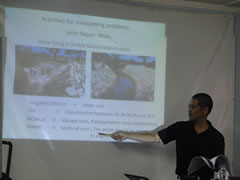 Second day
Second day
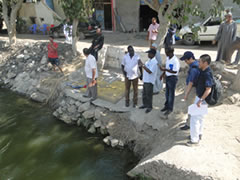 Second day
Second day
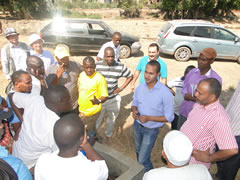 Second day
Second day
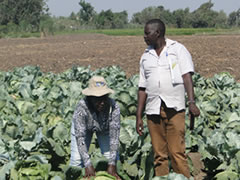 Second day
Second day
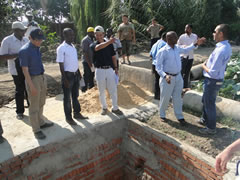 Second day
Second day
 Second day
Second day
On the third day, they visited a Directorate of Irrigation Advisory Service being in charge of Rash el Garbi Branch Canal which was a pilot site of the Water Management Improvement Program Phase II (WMIP II) and the Rash el Garbi BCWUA, and received briefings on current situations and activities by the local governmental staff and representatives of the BCWUA.
Then, the participants looked very interested in environmental activities in which local youth and women play their active roles.
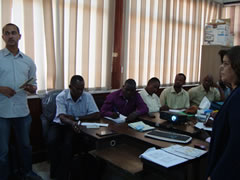 Third day
Third day
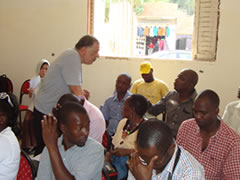 Third day
Third day
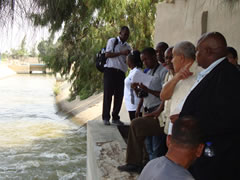 Third day
Third day
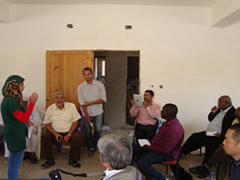 Third day
Third day
On the final day, there was a wrap-up meeting at the CDIAS. Then, the development of the roadmap on Water Management Transfer was firstly explained by the SWMT Project, while Water Saving Rice Culture including intermittent irrigation which has been introduced in Mwea district, were briefed by Mr. Abdoullahi Juma as a representative of the RiceMAPP.
Thereafter, Mr. Juma and Mr. Tomitaka gave presentations about what they learned in this program. Mr. Juma said in his presentation that they could learn that it is important to involve female members of BCWUA in the environmental activities, while board members of the BCWUA play active roles in their agricultural activities and conflict resolution.
After their presentations and Q&A, the whole program was successfully ended.
Although the three projects of the RiceMAPP, Tanrice 2 and the SWMT Project have been promoting effective use of water resources through farmer's participation, the participants of the RiceMAPP and the Tanrice 2 could get useful information about various activities on WMT for the BCWUAs in Egypt, while the participants of the SWMT Project learned a lot about irrigation technologies and other activities to improve operation of irrigation in the target areas being promoted by the other two projects.
We hope that all the participants of this TEP from Kenya, Tanzania and Egypt will further deepen and expand their cooperation to widely share their outcomes and experiences of technical cooperation.
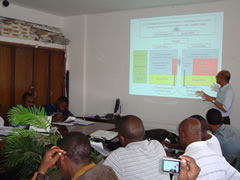 Final day
Final day
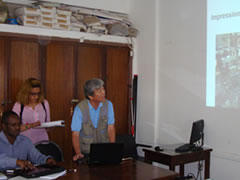 Final day
Final day
Note
- [1] The market-oriented approach means a series of necessary activities to extend a profitable agricultural system and sell the products in the market (Source: JICA Knowledge Site).
- About JICA
- News & Features
- Countries & Regions
- Our Work
- Thematic Issues
- Types of Assistance
- Partnerships with Other Development Partners
- Climate Change / Environmental and Social Considerations
- Evaluations
- Compliance and Anti-corruption
- Science and Technology Cooperation on Global Issues
- Research
- JICA Development Studies Program / JICA Chair
- Support for the Acceptance of Foreign HRs / Multicultural and Inclusive Community
- Publications
- Investor Relations
